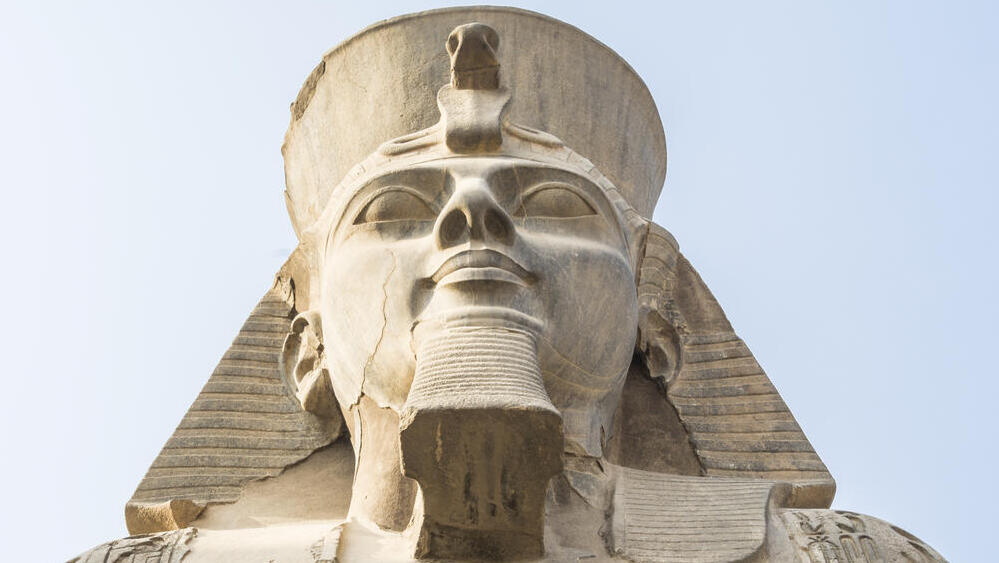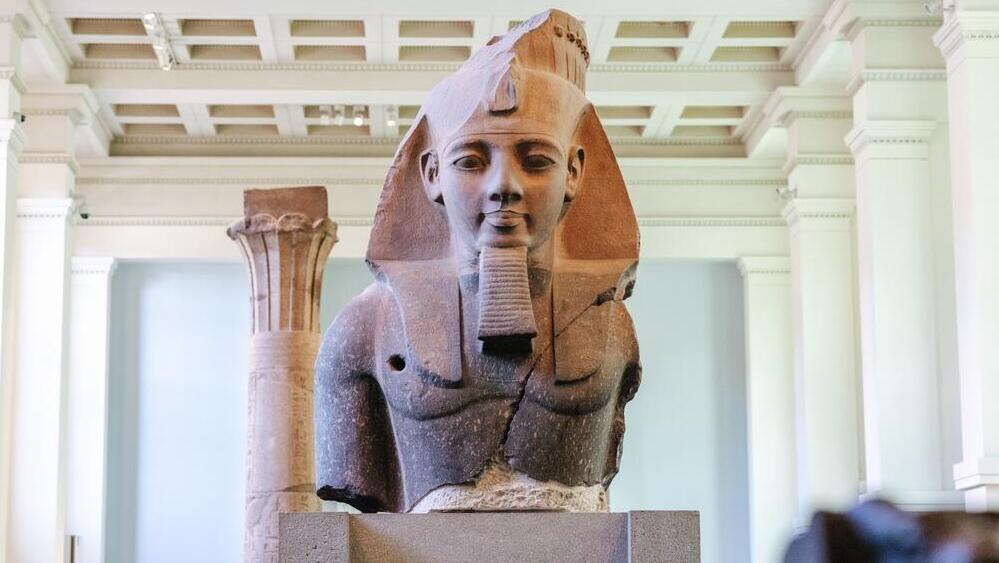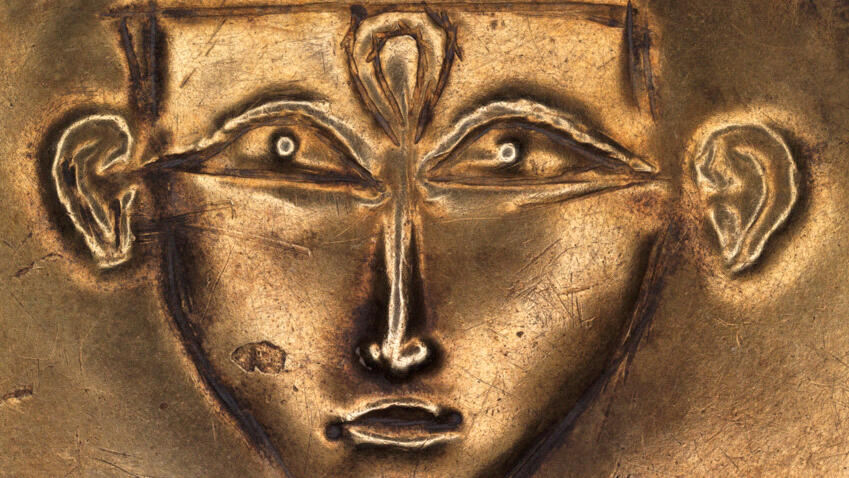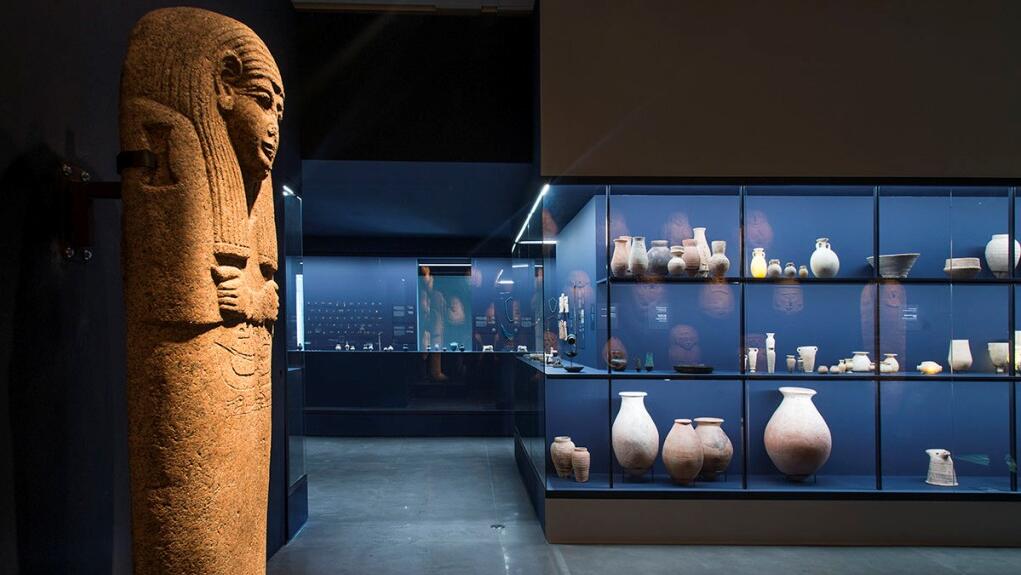Getting your Trinity Audio player ready...
The Jewish people had faced many adversaries in their long history: from the Babylonians to the Assyrians, against the phalanxes of Greece and the legions of Rome. But one of them, described in Passover's Haggadah and known by generations, remains a mystery.
Related Stories:
So, the question must be asked, who was the famous Pharaoh that ruled over Egypt, enslaved the Israelites, and faced off against one of the most influential characters in the Bible and Jewish identity, Moses?
Many historians, archeologists, Egyptologists, and Jewish Studies professors have attempted to solve the puzzle and find a concrete answer, and bring convincing evidence to support their varying hypotheses.
So let us attempt and find the puzzle's pieces first, before we attempt to bring them together and see if we can find a proper answer.
A heated debate has raged and continues to do so today among Egyptologists surrounding the verity of the famed tale of the Jewish Exodus from Egypt. Many deny its historical roots, claiming it as nothing but a part of the greater Jewish lore and myths found in the Bible.
Just as many, however, claim that the fact that Jewish people have written records about the incident and detail in them specific historical points that can be traced in other records from Egypt, means that there must be some credibility to the tale, even if it contains overestimations and hyperbole.
Biblical historian and Egyptologist Dr. Douglas Petrovich discusses this very issue, and is among the scholars who are searching for an answer.
According to Petrovich, two main streams of research exist in attempting to uncover the mysterious Pharaoh. The first, called the "late date" theory, names Ramesses II "The Great" as the Pharaoh ruling over Egypt in the 13th century BCE as the one who contended with the local Jewish people in Egypt.
This may seem, at first glance, to fit the bill perfectly. Every Jewish person who celebrated Passover is aware of the eponymous Ramesses city, and the name is even mentioned in the Haggadah! Problem solved.
A closer look at the text however (specifically Exodus 1:11), uncovers that the fabled Ramesses is actually a city built in Egypt allegedly by the Israelites, and often corresponds to the city of Pi-Ramesses, a large grain storage hub that was indeed constructed in Egypt circa 1270-1100 BCE.
The biblical text may seem like it has provided a clear answer for the search, but it also contradicts itself. In the story of Exodus detailed in the Bible, it's said that the Pharoah who ruled over Egypt at the time followed a long reign of the previous Pharaoh (who is also unfortunately unnamed).
While Ramesses II himself had enjoyed a long time sitting on the throne of Egypt, he came to power after the death of Seti I who ruled for an estimated and humble 15 years, making Ramesses II a much less likely candidate for the title of the Exodus Pharaoh.
Another theory that attempts to explain the Pharaoh's identity is known as the "early date", and nominates the 15th century BCE Pharaoh Amenhotep II as the one who reigned in Egypt during the time when the Israelites left the area.
Interestingly enough, Petrovich quotes one of the famous plagues Moses cast on Egypt at the Pharaoh's refusal to release the Jewish slaves, as a possible cause to support Amenhotep II as the biblical character.
During the 10th and final plague on Egypt, in which God descended on the land and killed every firstborn as he foretold to Moses, logic would dictate that if the pharaoh himself were the firstborn of his father, he would've died himself.
While Ramesses II really was the eldest son of his father, Amenhotep II was not, and could've survived the plague. Additionally, the records show that out of all of Amenhotep's children, none are described as being his firstborn, as the ancient Egyptian custom usually ordained.
Further supporting the claim are Amenhotep's military campaigns into Asia support many of the details described in the Hebrew texts, alongside a vanishing of the slave population in Egypt that took place in the area around the middle of the 15th century BCE without clear explanation.
So, who was Passover's pharaoh? We may never know for sure, but as archeological technology advances and become more reliable, maybe the answer hides somewhere in Egypt's dunes, waiting to be uncovered.
Matan Shor is a writer and editor in Ynetnews and studies General History.






